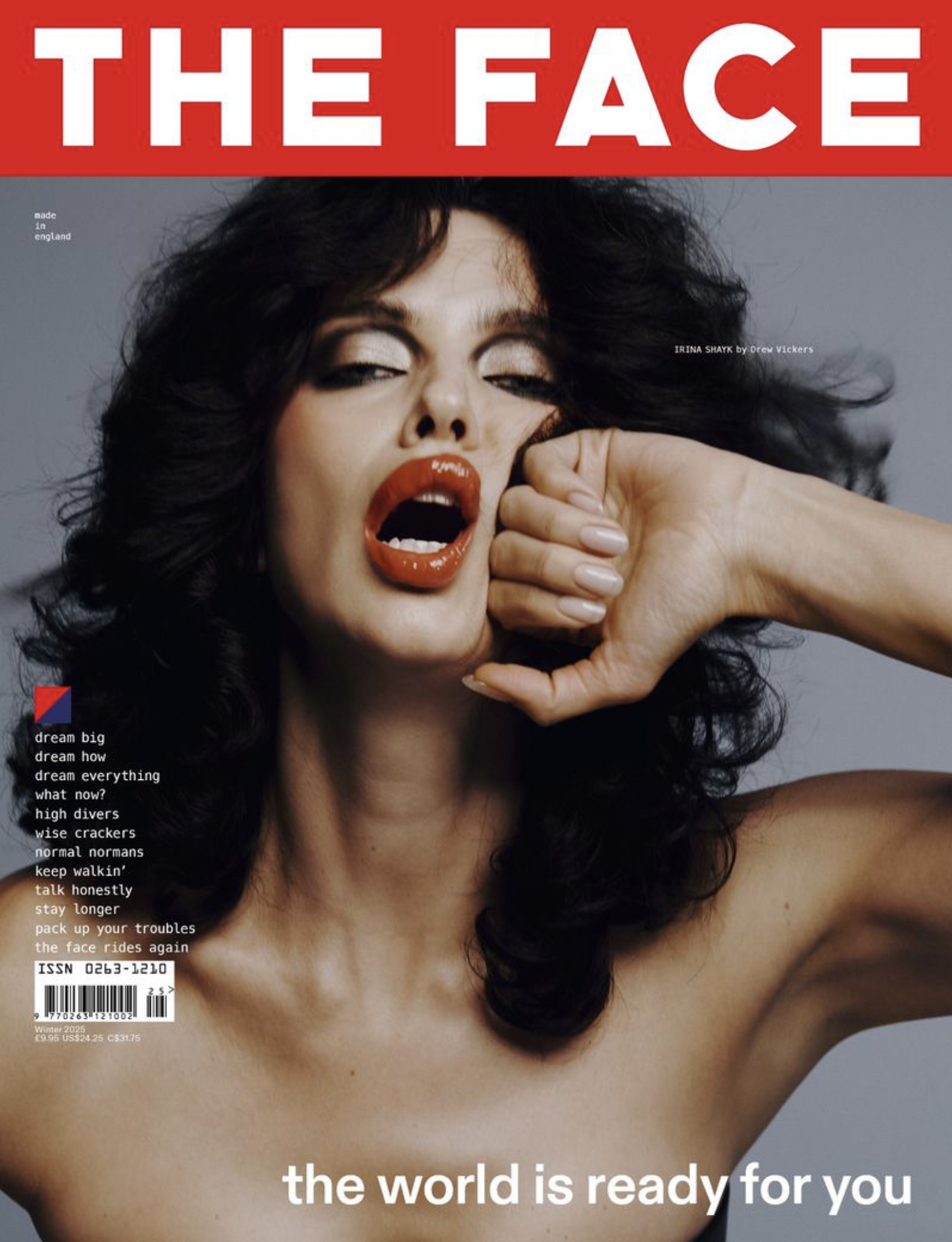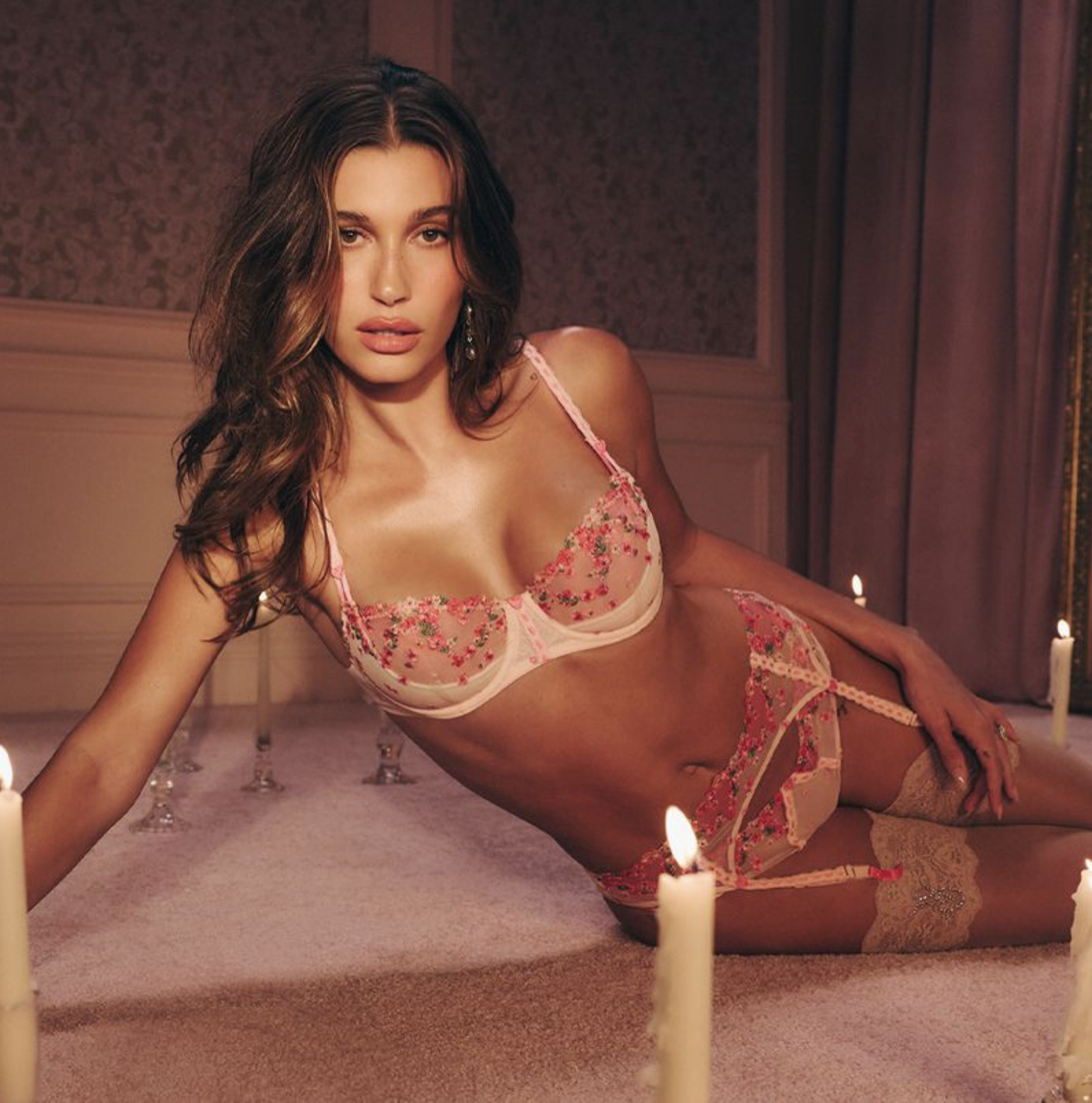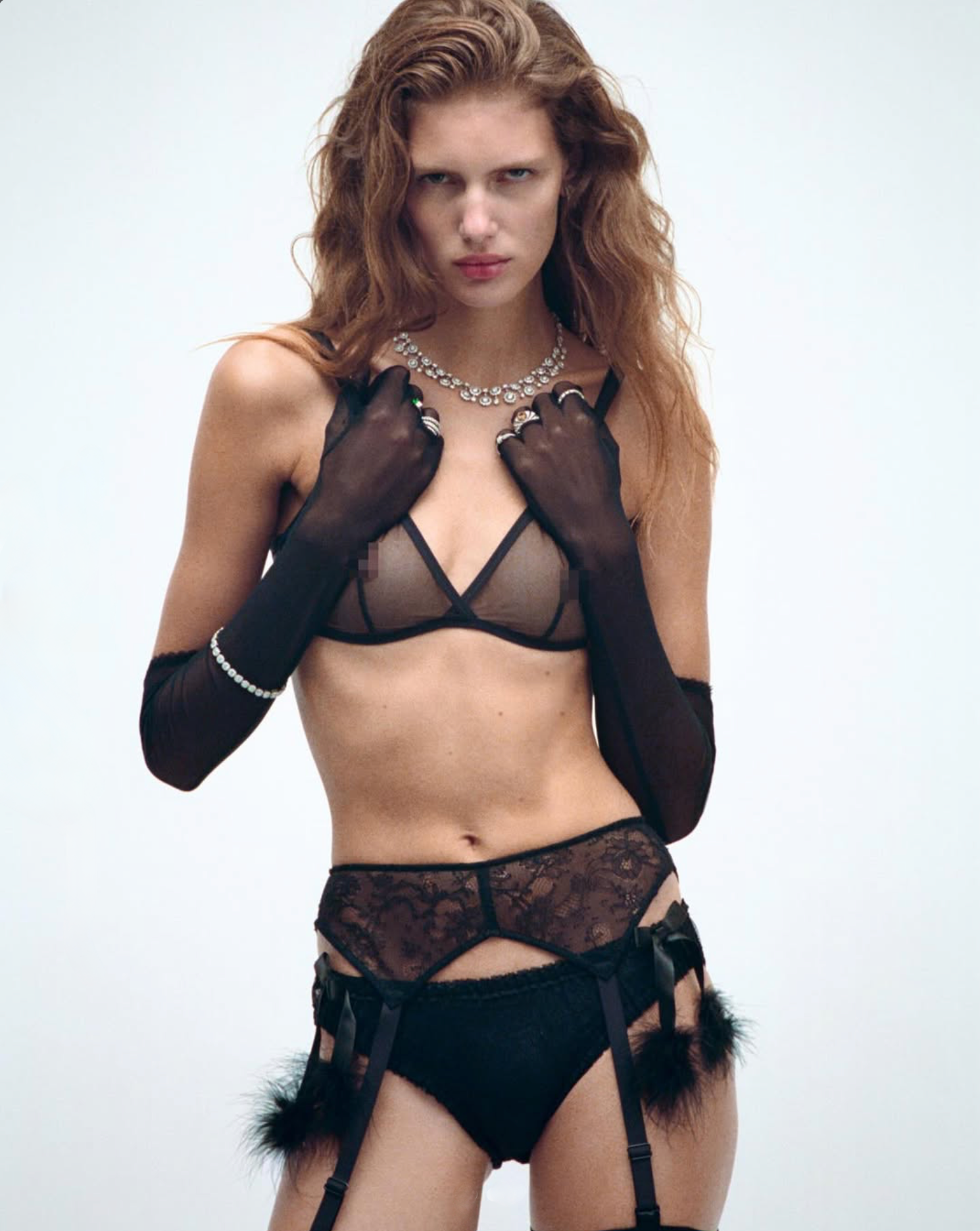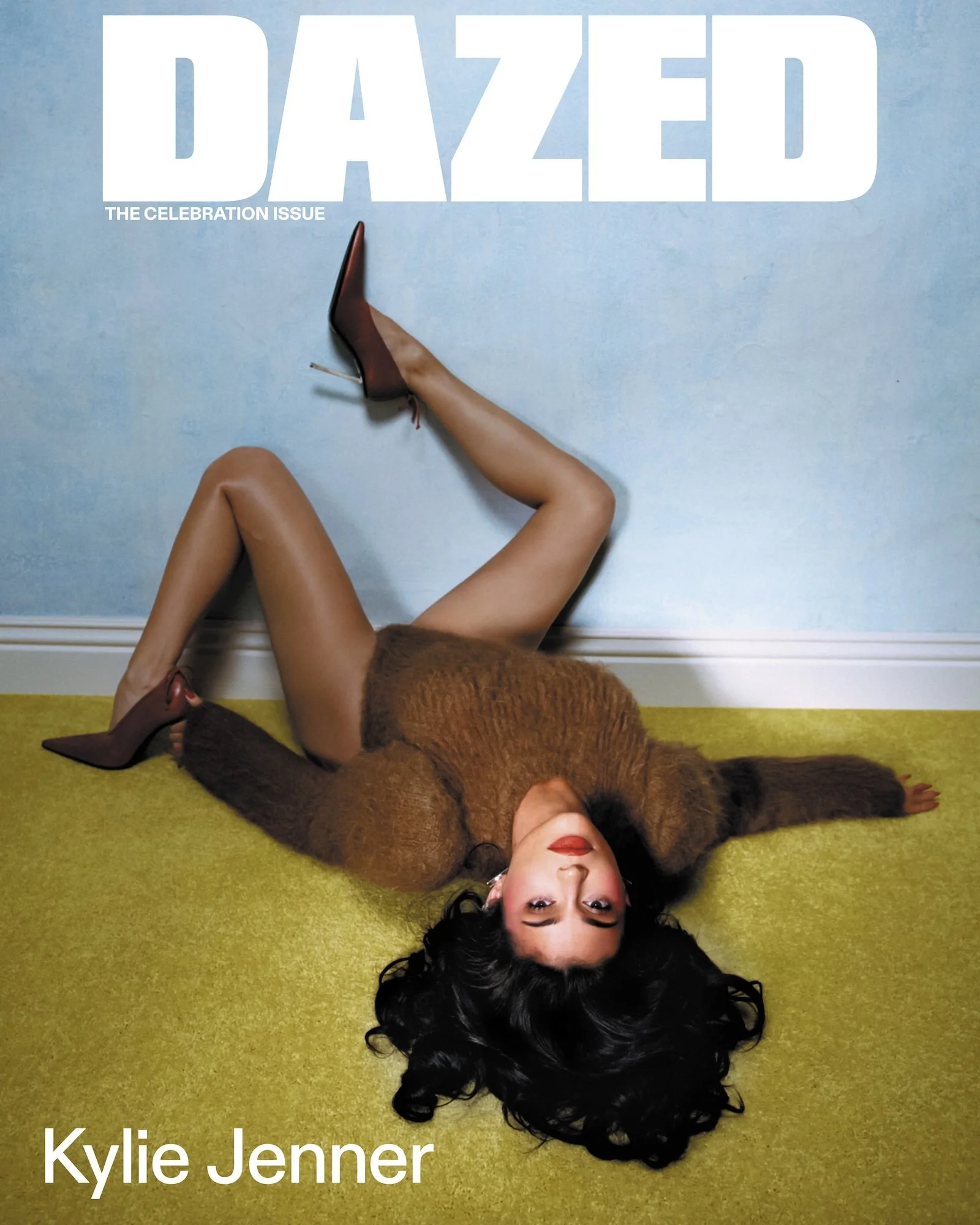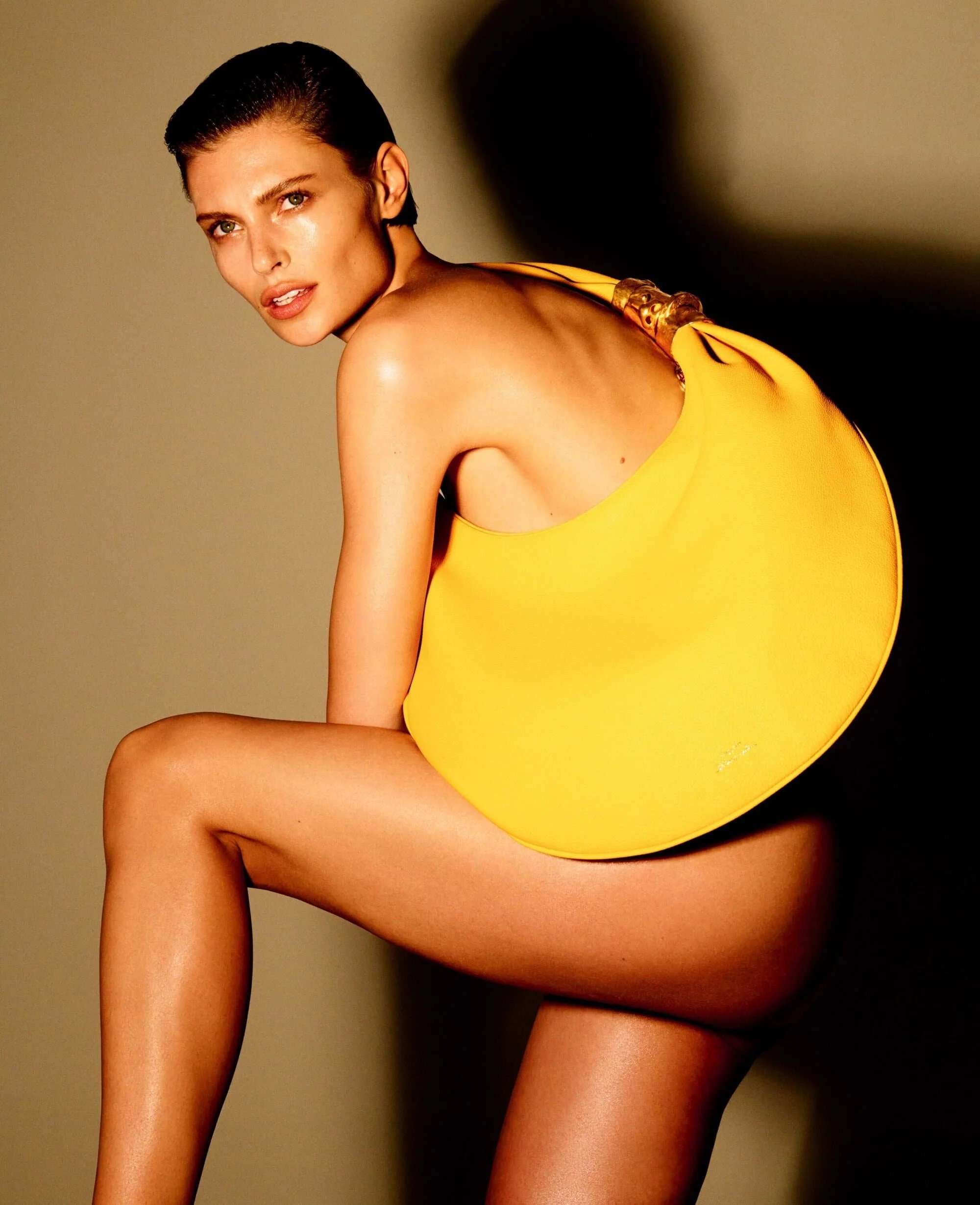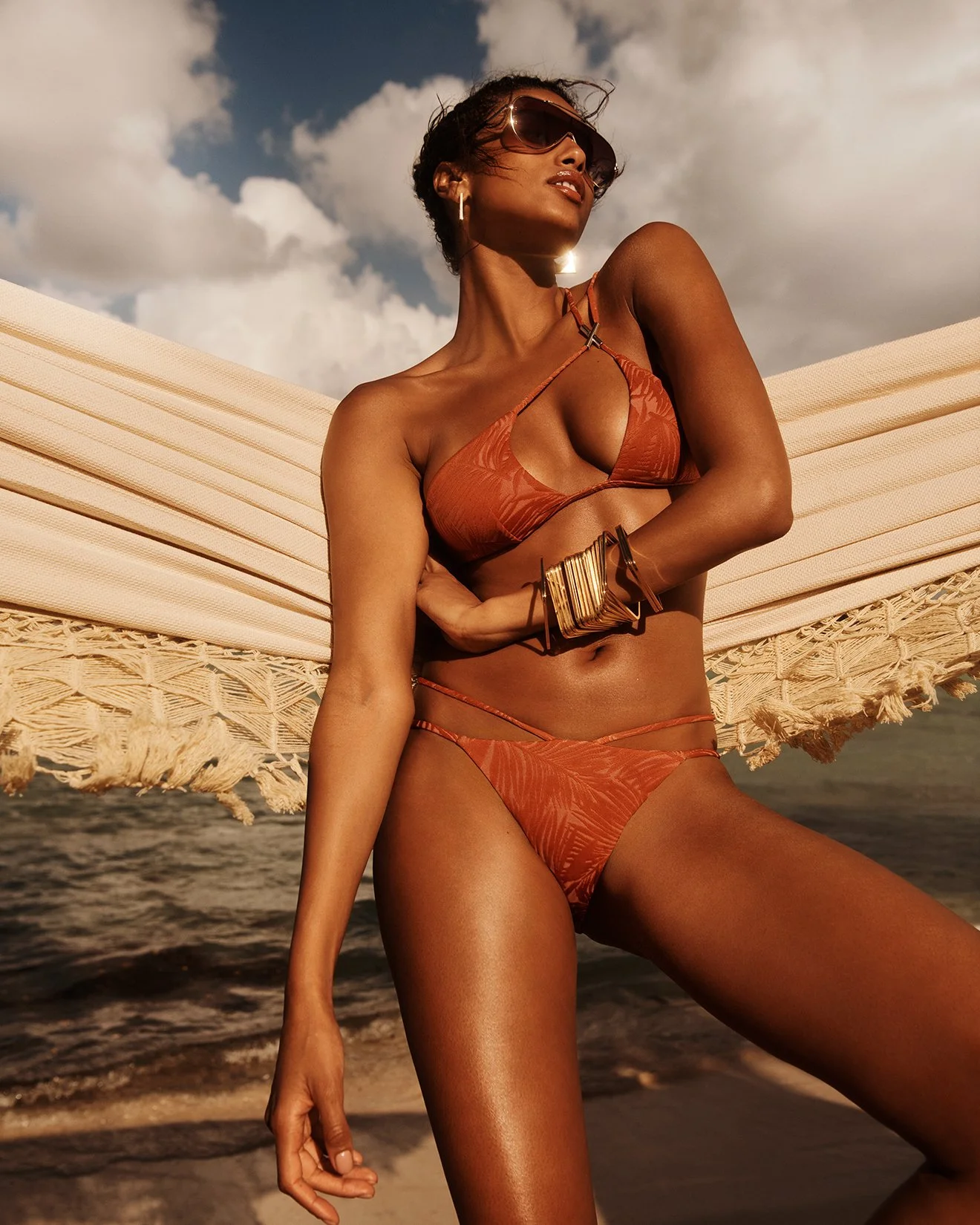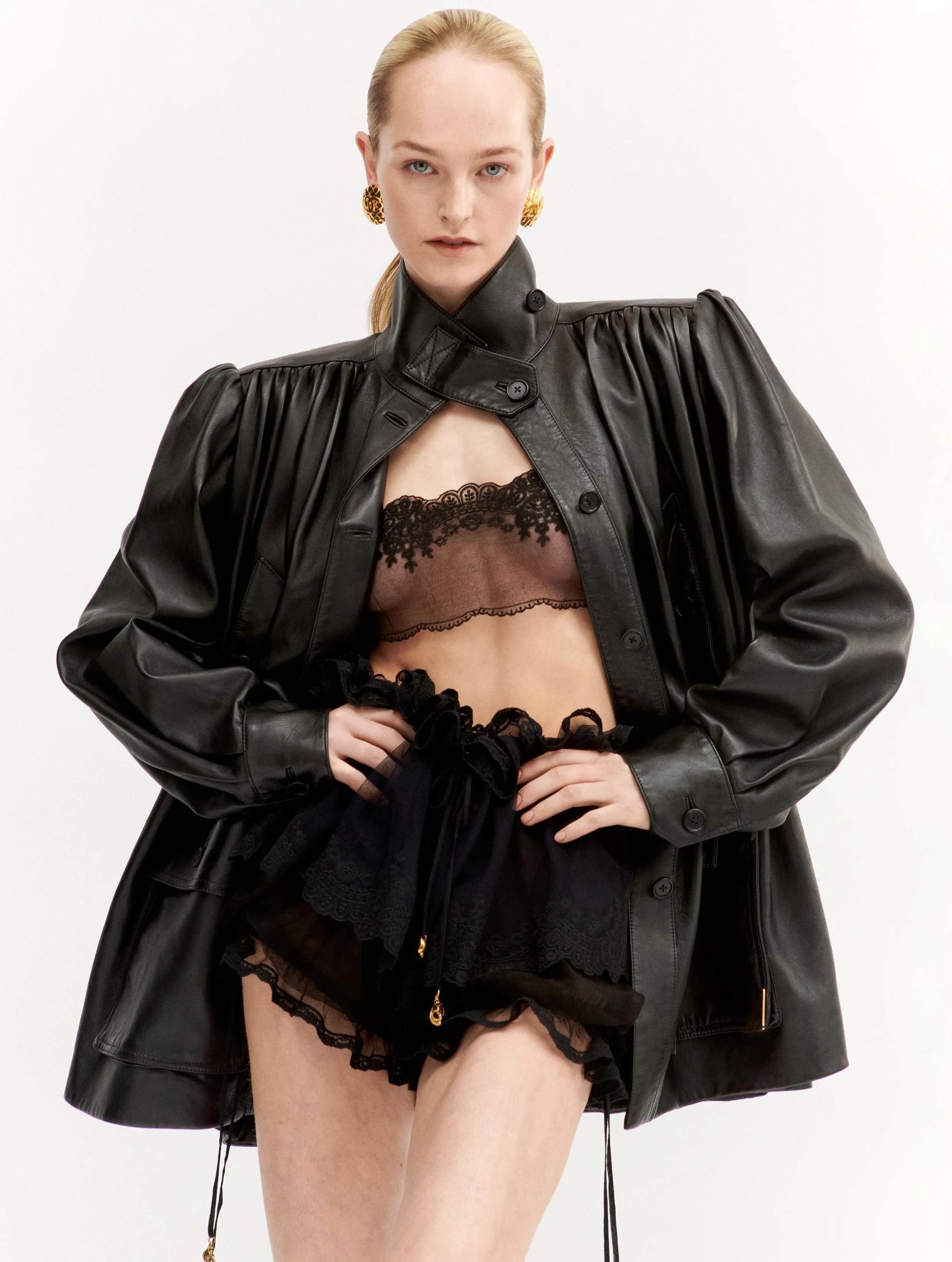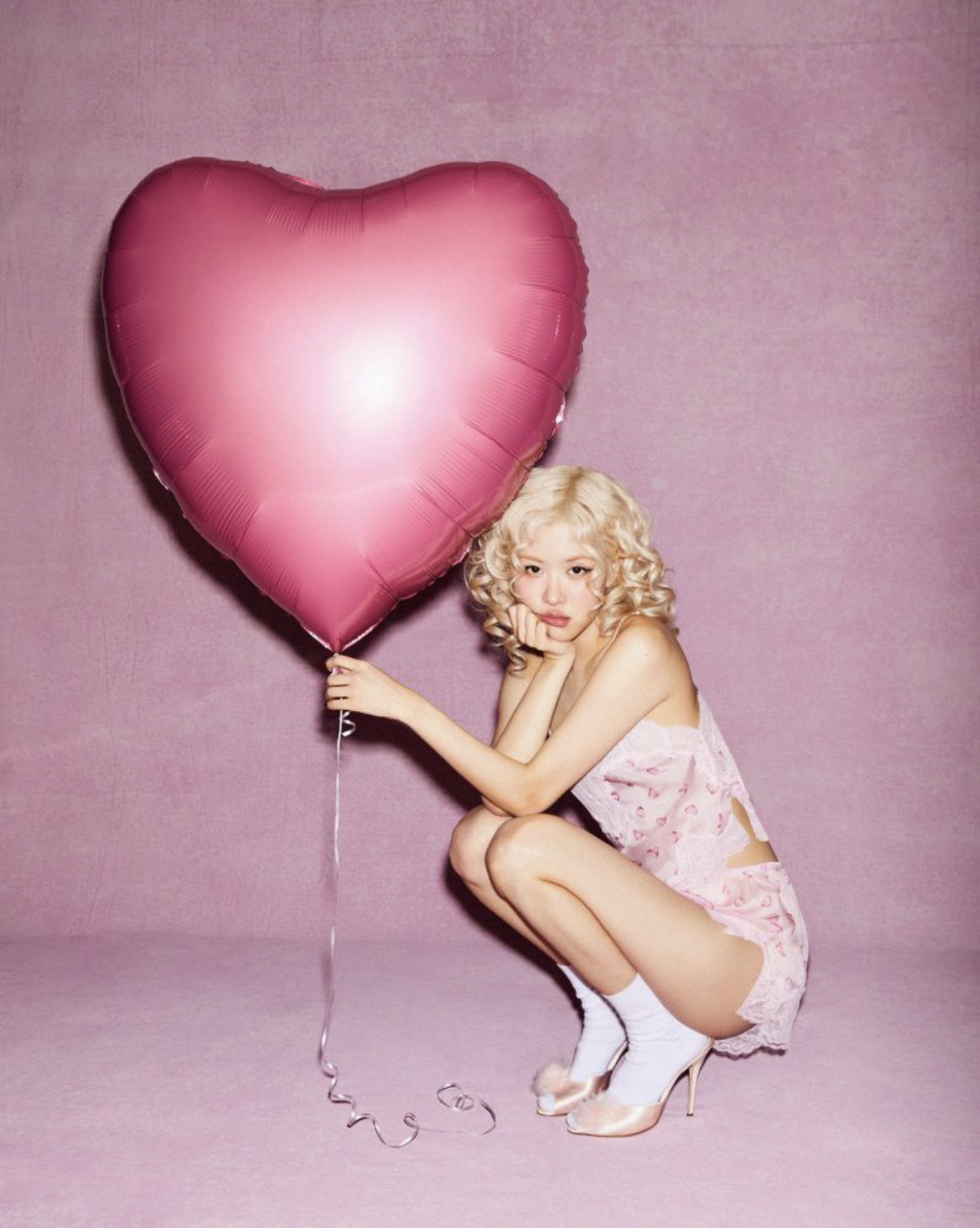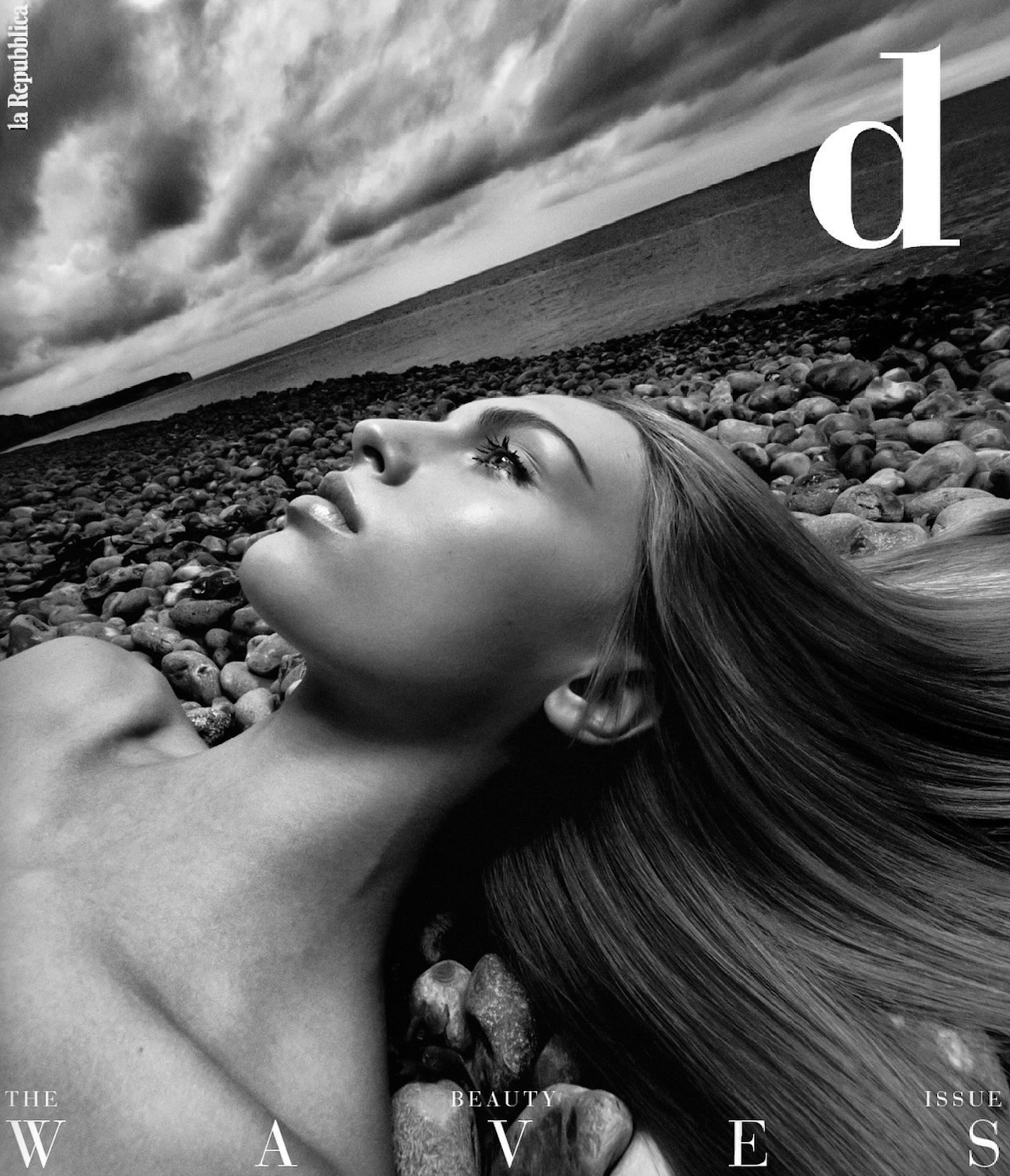The LVMH Challenge of Branding Christian Dior For the Future
/ Riccardo Tisci at Fall 2011 Givenchy show. GoRunway.comWe’ll ignore unsourced morning Dior buzz that Riccardo Tisci is a ‘go’ at Christian Dior and focus on WWD’s business assessment of the candidates, which is totally on target with our own. Like NYT Cathy Horyn, WWD questions Tisci’s design vision as lacking femme fatale glamour but agrees that he’s the front runner.
Riccardo Tisci at Fall 2011 Givenchy show. GoRunway.comWe’ll ignore unsourced morning Dior buzz that Riccardo Tisci is a ‘go’ at Christian Dior and focus on WWD’s business assessment of the candidates, which is totally on target with our own. Like NYT Cathy Horyn, WWD questions Tisci’s design vision as lacking femme fatale glamour but agrees that he’s the front runner.
I’ve written why I adore Tisci as a man designing for women — one who truly loves women. The designer’s personal relationships impress me greatly for their apparent substance, as described by his friends.
My impression of the designer got another boost this morning, reading Vogue UK’s story about Riccardo Tisci not wanting to take the Givenchy job in 2005 and what changed his mind.
“I wasn’t interested,” says Tisci. “Not at all. I was going to say no. But the week before, my mother called me and said to me, ‘I am going to tell you something I haven’t even told your sisters: I think I am going to sell our house because your sisters are struggling, they’re able , they’re having children, they need the money. I will go to a retirement home.’ When I heard that it was like a knife in my heart. I felt like such a failure, that my mother had to sell the house of my father whom I don’t remember. And then I went to Paris, and they showed me a contract with all these zeros on it, and it was like help from God. I thought ‘If I sign this, my mother will never have to worry again.’ So I signed it.”
The John Galliano fallout is still simmering around the Christian Dior brand. Even the Jerusalem Post wrote about the Nazi history of its founder and the reality that “Collusion with the Nazis produced enormous profits for the French fashion industry during the period between 1941 and 1943.
 Christian Dior’s niece FrancoiseThe video of Christian Dior’s niece Francoise in 1963 to the British Nazi Colin Jordan has been traveling the Internet, although not here. While the furor has been understandably focused on Galliano’s comments about loving Hitler, he made some pretty abominable statements about women, too.
Christian Dior’s niece FrancoiseThe video of Christian Dior’s niece Francoise in 1963 to the British Nazi Colin Jordan has been traveling the Internet, although not here. While the furor has been understandably focused on Galliano’s comments about loving Hitler, he made some pretty abominable statements about women, too.
Bottom line, the entire topic of imperious fashion designers and their views of the women who buy their clothes is simmering. I know, because I ruffled some VIP feathers myself over the weekend, writing Franca Sozzani’s Petition Fights Pro Anorexic Websites | Vogue Italia.
Of course we support the petition, and I signed it. But I disagree that the fashion industry has nothing to do with the size 0 obsession in women, and I’ve explained why endless times.
To be blunt — which I notoriously am — the next designer at Christian Dior must possess extraordinary talents but also a nice personality. As the ‘face’ of the brand, s(he) must be authentic and grounded in an emerging zeitgeist in which personal values are relevant and part of one’s talent package.
Women aren’t little soldiers who need to get our marching orders from imperious personalities telling us who and what to be as women. It’s Tom Ford who told Interview Magazine that many fashionistas are truly insecure in their identities, and I agree with him. But I also see shifting sands ahead as women wise up to what’s going on around us.
The Internet plays a role here, too. My writing finds a significant audience — 250,000 strong this month, with 40% being existing readers and the rest new. Our own websites are growing at a blistering pace.
Told Saturday evening that misogyny against women in the fashion industry is a preposterous idea, I reminded this Parisian VIP that Anne of Carversville’s brand message “from fashion to flogging, telling women’s stories” exists for a reason.
The degree of his upset over my hypothesis confirmed that I struck a very deep nerve.
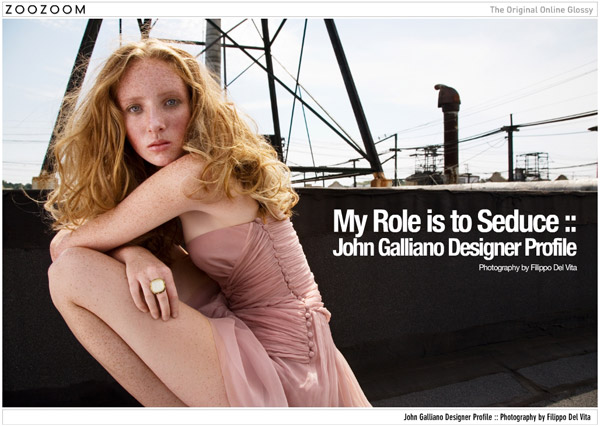
Fashion Fascism
The imperious mind easily falls into a fascist-like mentality of human relations. Self-discipline (which most of us need much more of) becomes sexual monasticism, especially when the focus is women’s bodies. The Futurist Manifesto — a cornerstone document of the 20th century — expresses a scorn for women as fundamental to its ideology.
There’s a long list of men I adore in Paris fashion: Riccardo Tisci, Tom Ford, Marc Jacobs and Alber Elbaz for a warmup. In other cases, I’ve read too many psychology books from Freud to Jung to ignore what I observe and read in word and deed.
Conversely, Riccardo Tisci’s comments about his mother this morning and the totality of his support of Lea T make him very human in my eyes.
Bad boy behavior expresses itself on multiple fronts, and we tolerate it under the umbrella of talent and creativity. For all his mercurial abilities so worshipped by the fashion elite, John Galliano didn’t make much money for Christian Dior.
The Smart Sensuality Woman
In the same Vogue UK post this morning, Tisci tells the Financial Times (source of their story):
It’s a strange time in fashion - everything has got so big. We can get very insular, the fashion tribe - we think we’re a lot of people but actually we’re very small - but my mother, my sisters don’t understand fashion now, which is how I realised what the final consumer feels. They don’t want to buy image, they want to buy substance.”
Bernard Arnault is a very smart man and the corporate values of LVMH are inspirational to read, with brand substance and authenticity — not artifice — high on his list. Trust me when I say that Arnault is acutely aware of this shifting values landscape around his core client, the Smart Sensuality woman.
She is sexy and smart with heart. She is a stylish, no-nonsense woman, rolling up her sleeves to deal with our mess of a world. She is more confident as a woman, razor sharp, and a growing force to be reckoned with. Anne


